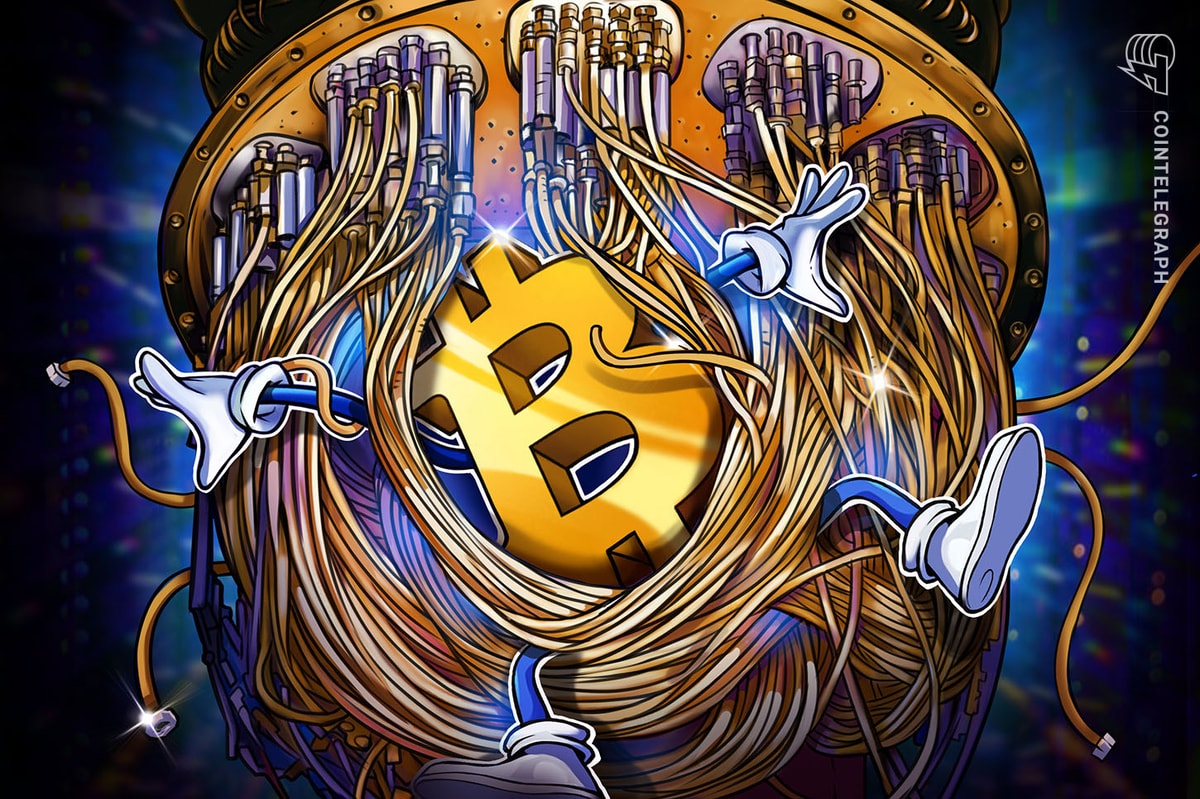Toncoin (TON), the eponymous cryptocurrency associated with The Open Network, also known as TON, exploded in popularity this year.
Toncoin has become one of the 10 largest cryptocurrencies, with a market capitalization of $13.4 billion.
There are currently 2.5 billion coins in circulation worldwide, and the cryptocurrency’s total supply is 5.1 billion. Over the last nine months, the value of Toncoin has increased by around 150%.
There are a number of wallets that support TON, each with its own peculiarities. Some are custodial and focused on convenience and ease of use, while others provide users complete control over the cryptocurrency.
There are simple wallets with a minimum set of functions, more complicated ones with options such as staking, and secure solutions for long-term storage.
Wallet
Since Toncoin is a product of the TON network — a blockchain initially supported by messaging app Telegram — there is naturally a wallet users can access directly in Telegram.
This wallet, a Telegram bot called Wallet, can store, exchange and trade tokens in a peer-to-peer marketplace. However, it only supports a few currencies: Toncoin, Notcoin (NOT), Bitcoin (BTC), Dogs (DOGS) and US dollars.
Users can convert stored cryptocurrencies and exchange them at the current market rate. There is also a full-fledged peer-to-peer market where merchants can buy and sell coins for fiat, though it’s only available via desktop or mobile versions of Telegram.
Wallet. Source: Telegram
The wallet bot is a centralized solution, so it does not provide users with their private keys. While this approach is convenient for novice traders, it is less secure.
According to Kris Varley, editor at crypto analytics platform DropsTab, “Keeping Toncoin on Telegram bot is not the safest way. Bots are custodial, meaning you trust them with your keys. If the bot is hacked or goes down, you could lose your funds.”
The wallet has a limited range of actions depending on the user’s verification level. The “basic” level, the default level, features a monthly limit of 35,000 euros (roughly $39,000) on incoming transactions and P2P trading volumes.
Recent: 6 things the US needs to stay competitive in crypto, according to execs
The “extended” level increases these limits to 1 million euros ($1.1 million) per month. Users must provide their national ID to activate this level.
The “advanced” level removes all restrictions, but users must provide documents to prove their residential address.
Tonkeeper
Tonkeeper is a simple cryptocurrency wallet that supports TON blockchain tokens. It can hold Toncoin, Notcoin and other tokens based on TON.
The wallet is non-custodial, meaning users manage their own key phrase. Tonkeeper has desktop and mobile versions, plugins for the Chrome, Edge and Brave browsers, and a Telegram bot.
Users can buy cryptocurrencies with fiat money using a partner service.
Tonkeeper wallet. Source: Tonkeeper
The wallet also allows users to stake Toncoin, requiring a minimum balance of 2.2 TON.
SafePal
Hardware wallets generally provide the most secure long-term storage solutions for cryptocurrencies, and Toncoin is no exception.
SafePal S1. Source: SafePal
SafePal is a reliable and versatile wallet designed to securely manage cryptocurrencies, including Toncoin.
The SafePal S1 wallet features advanced security features such as an EAL5+ secure element chip, random number generator and air-gapped signature mechanism. These features keep private keys safe offline, protecting them from potential online threats.
SafePal’s key features include support for a large number of cryptocurrencies, convenient integration with Binance for spot trading and a simple interface. The wallet allows users to manage, exchange and trade assets.
SafePal’s combination of security, functionality and ease of use makes it a popular choice among cryptocurrency users.
Tonhub
Tonhub is a non-custodial wallet with mobile and browser versions. It provides complete anonymity without requiring registration or user identification. Tonhub has several extra features for protecting users’ assets, including PIN code and biometric login.
One of Tonhub’s main advantages is its compatibility with any other cryptocurrency wallet based on the TON blockchain.
Along with basic functions like storage and transfers, Tonhub lets users stake cryptocurrency with a variety of pools. The application also includes a Web3 browser.
However, some users have complained about frequent issues with the application’s updates and occasional crashes.
OpenMask
OpenMask is a browser plugin offering a non-custodial cryptocurrency wallet that supports tokens on TON and non-fungible tokens.
OpenMask is fairly straightforward. Users can store Toncoin, receive and send crypto, and buy and exchange cryptocurrencies. The exchange operations are performed through partner services such as DeDust, Ston.fi, StealthEX and ChangeHero.
The wallet also supports Web3, interacting with smart contracts and connecting to decentralized applications.
While easy to use, OpenMask has some drawbacks, such as regular application crashes, spontaneous reboots and frequent problems with integrating the Ledger hardware wallet.
OpenMask wallet. Source: OpenMask
Which wallet to choose?
All the above wallets offer users some measure of security and an extensive set of additional functions.
If security is a priority, a non-custodial wallet is the best choice. If convenience and user support are more important, a custodial wallet might make more sense.
Absolute beginners intimidated by the technical bells and whistles of a typical wallet application might find Telegram’s native Wallet makes the most sense.
Recent: Elon Musk’s X ban dispute with Brazil takes toll on local crypto community
Keep in mind that custodial wallets are potentially more vulnerable to hacks, so it’s important to use trusted and tested services. Non-custodial wallets are more secure but require a higher level of responsibility.
Experienced users typically keep long-term cryptocurrency investments in hardware-based non-custodial wallets and use exchanges and custodial services for day-to-day transactions.











